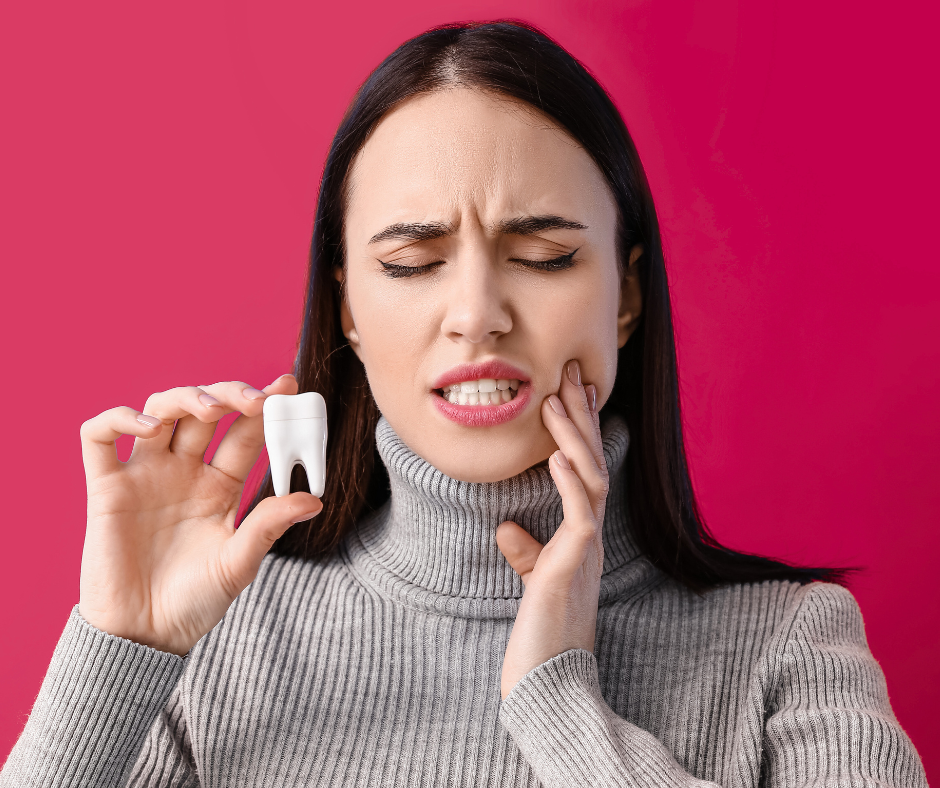Foods and Habits That Can Trigger Tooth Sensitivity
- sarahcline2000
- Aug 19, 2025
- 2 min read

Tooth sensitivity can make everyday activities like eating, drinking, and even brushing your teeth uncomfortable. That sharp or tingling pain often happens when the enamel on your teeth becomes worn down, exposing the sensitive layer underneath. While sensitivity can sometimes be linked to underlying dental issues, many times it is caused by specific foods and everyday habits. Understanding these triggers can help you protect your teeth and reduce discomfort.
Common Foods That Cause Sensitivity
Certain foods and drinks can aggravate sensitive teeth more than others. Some of the biggest culprits include:
Cold foods and drinks such as ice cream, iced coffee, or chilled water can cause sudden sharp pain.
Hot foods and drinks like soup or tea may worsen sensitivity if enamel is already weakened.
Sugary snacks and drinks can contribute to enamel erosion and cavities, both of which increase sensitivity.
Acidic foods and drinks such as citrus fruits, soda, and vinegar-based dressings can wear away protective enamel.
Sticky or hard foods like caramel or hard candy can pull at weakened areas or cause small cracks that expose sensitive surfaces.
Everyday Habits That Make Tooth Sensitivity Worse
Beyond diet, certain daily habits can put extra stress on your teeth and lead to sensitivity:
Brushing too hard or using a hard-bristled toothbrush can wear down enamel and irritate gums.
Grinding or clenching your teeth (often while sleeping) can cause small fractures and enamel damage.
Skipping regular dental checkups may allow small problems, like cavities or gum recession, to worsen over time.
Using whitening products too often can strip enamel and make teeth more reactive to hot and cold.
Poor oral hygiene can increase plaque buildup, leading to gum recession and exposed roots.
How to Reduce Tooth Sensitivity
The good news is that tooth sensitivity can often be managed with a few adjustments:
Switch to a soft-bristled toothbrush and brush gently.
Use toothpaste designed specifically for sensitive teeth.
Limit acidic and sugary foods when possible.
Wear a night guard if you grind your teeth while sleeping.
Keep up with professional cleanings and regular dental visits.
Frequently Asked Questions
Q: Is tooth sensitivity always a sign of a cavity?
A: Not always. While cavities can cause sensitivity, it is also commonly linked to worn enamel, gum recession, or even overuse of whitening products.
Q: Can sensitive teeth get better on their own?
A: In some cases, minor sensitivity may improve with lifestyle changes and special toothpaste. However, ongoing or severe sensitivity should be checked by a dentist to rule out bigger issues.
Q: Should I avoid all cold foods if I have sensitivity?
A: Not necessarily. Limiting extremely cold items may help, but addressing the underlying cause with your dentist is the best long-term solution.
Protecting Your Smile
Tooth sensitivity is a common problem, but it does not have to interfere with your daily life. By avoiding trigger foods, changing harmful habits, and keeping up with regular dental care, you can reduce discomfort and protect your enamel. If your sensitivity continues, schedule an appointment with your provider for further evaluation.
If you are experiencing ongoing tooth sensitivity or have questions about your oral health, the team at Cline Medical Group is here to help. Call us today at 606-637-2334 to schedule your appointment and take the first step toward a healthier smile.
.png)
Comments